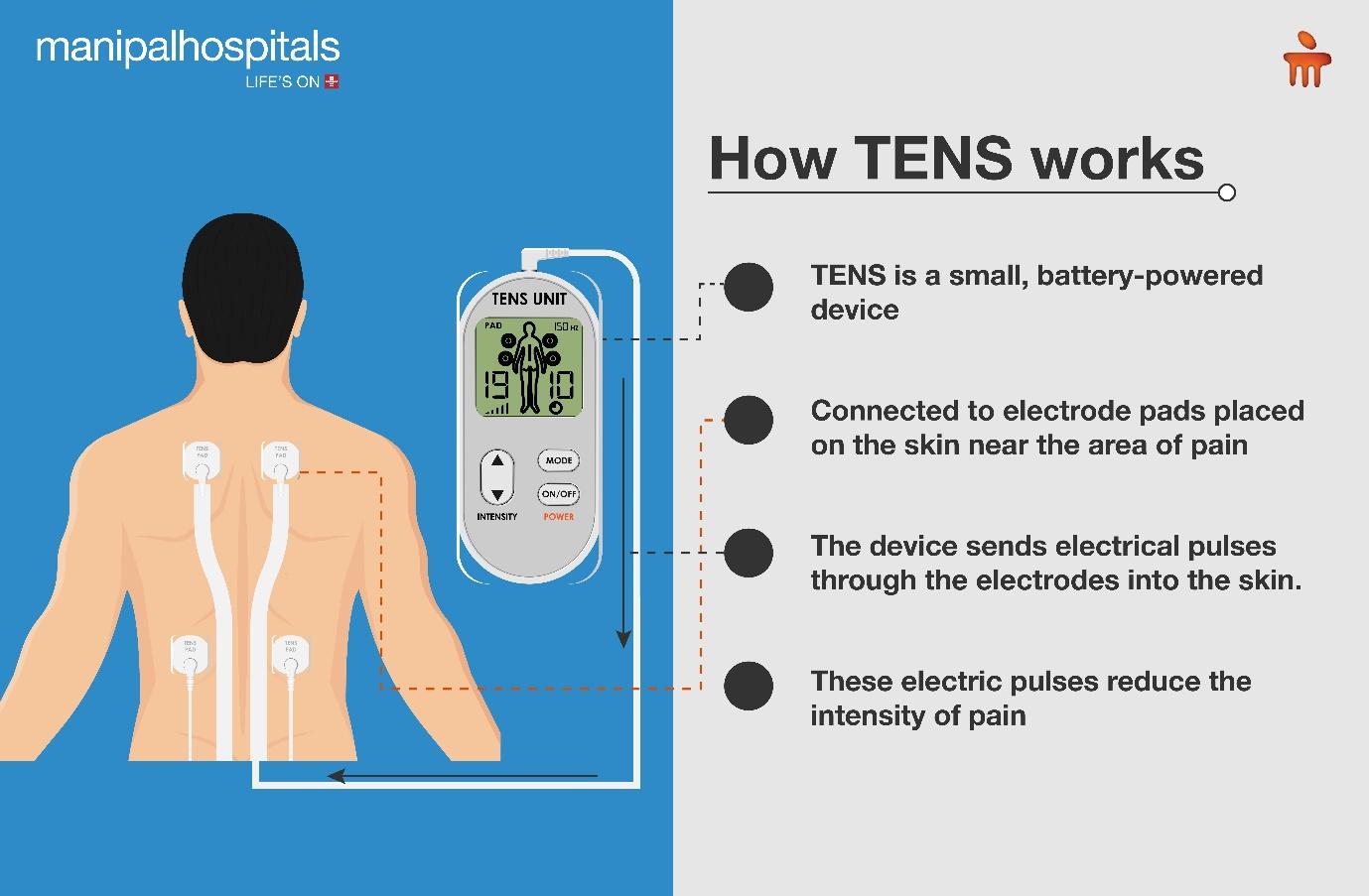
Pain, a universal human experience, can alert us to potential harm and diminish the quality of life, making it a significant healthcare concern. Traditional pain management approaches often fall short or carry risks of side effects and dependency, the search for effective, safe alternatives has led to innovations like Transcutaneous Electrical Nerve Stimulation (TENS).
Transcutaneous Electrical Nerve Stimulation (TENS) offers a popular, non-invasive method to help relieve pain. This therapy uses low-voltage electrical currents that activate peripheral nerves to alleviate pain. TENS therapy provides a drug-free alternative for pain relief, especially for those who seek to avoid medication side effects.
Users place electrodes on their skin, connecting them via wires to the TENS unit. Manufacturers design these units to be customisable and compact, making them easy to carry. The biggest advantage is its ability to achieve pain relief with minimal side effects and no risk of overdose.
Synopsis
How TENS works
Ancient Roman physicians employed electric eels for pain management as early as 60 AD, highlighting that using electricity was not new. American neurosurgeon Dr. Norman Shealy developed the current-day concept of TENS, aiming to create an effective therapy for migraine, back pain, and gout. Since then, TENS has evolved into various forms and gained widespread use for different types of pain modalities.

TENS therapy uses electrical stimulation to modulate pain signals. A small, battery-powered device connects to electrode pads, which users place on the skin near the area of pain or along specific nerve pathways. The device sends electrical pulses through the electrodes into the skin when activated.
These electric pulses activate peripheral nerves to reduce the effect of pain receptors (or the process of nociception). Additionally, TENS increases the activity of neurochemicals such as beta-endorphins and enkephalins, which interact with opioid receptors, to reduce the nerve excitation that causes pain.
Types of TENS
There are several types of TENS applications, each with specific settings and purposes:
-
Conventional TENS: Uses high-frequency, low-intensity stimulation for immediate pain relief.
-
Acupuncture-like TENS: Employs low-frequency, high-intensity stimulation to promote endorphin release.
-
Intense TENS: Delivers bursts of short high-frequency and high-intensity stimulation.
Health Conditions Treated with TENS
Some common conditions treated with TENS include:
-
Chronic pain: Back pain, neck pain, arthritis pain, fibromyalgia, and neuropathy.
-
Acute pain: Post-surgery pain, menstrual cramps, and headache.
-
Muscle spasms: TENS can help relax muscles and reduce spasms.
-
Neuropathic pain: Pain caused by nerve damage, such as diabetic neuropathy or shingles-related pain.
TENS Procedure: Before and After
Before:
-
Consultation: You'll typically have a consultation with a healthcare professional to discuss your medical history, symptoms, and treatment goals.
-
Electrode placement: Depending on the condition, the healthcare provider will place adhesive electrodes on specific areas of your body.
-
Intensity adjustment: The TENS device will be set to a comfortable intensity level, often adjusted based on your feedback.
After:
-
Treatment session: The TENS device will deliver electrical pulses for a predetermined duration. You may experience a tingling or buzzing sensation.
-
Post-treatment effects: Some people may experience temporary pain relief or muscle relaxation after a TENS session.
Who Shouldn't Be Taking TENS?
While TENS is generally safe, it's not suitable for everyone. Certain individuals should avoid TENS therapy, including:
-
People with pacemakers: The electrical currents from TENS can interfere with a pacemaker's function.
-
Individuals with epilepsy: TENS can trigger seizures in some people with epilepsy.
-
Pregnant women: The safety of TENS during pregnancy has not been fully established.
-
People with certain skin conditions: Skin irritations or infections can be aggravated by electrode placement.
-
Individuals taking blood thinners: TENS may increase the risk of bleeding.
Pros and Cons of TENS
Pros:
TENS offers several advantages as a pain management technique:
-
Non-invasive: TENS physiotherapy is a drug-free treatment option. TENS does not require any surgical procedures or injections.
-
Minimal side effects: TENS has minimal risk of adverse effects when used correctly.
-
Portable: Many TENS units are compact, battery-operated, and portable, allowing for use at home, work, or while travelling.
-
Effective pain management: TENS can provide significant pain relief for many individuals.
Cons:
There are some limitations and precautions to consider with TENS:
-
Temporary relief: The effects of TENS may be temporary, and regular treatments may be required. TENS may not be effective for all types of pain or all individuals.
-
Not effective for everyone: TENS may not be effective for all pain or conditions.
-
Requires adjustment: Finding the optimal electrode placement and intensity settings may take trial and error.
-
Potential skin irritation: Some users may experience skin irritation or allergic reactions to the electrode pads.
Transcutaneous Electrical Nerve Stimulation represents a valuable tool in the pain management arsenal. Its non-invasive nature, ease of use, and potential for drug-free pain relief make it an attractive option for many individuals suffering from various pain conditions.
As with any medical treatment, it is essential to consult healthcare professionals before starting TENS therapy, especially for those with underlying health conditions. Visit our specialists at the Department of Neurology to learn more about TENS therapy. With proper use and help from doctors, TENS can be an effective component of a pain management plan.
FAQ's
When used as directed, TENS is considered safe for most people. However, consult a healthcare provider before use, especially if you have certain medical conditions.
TENS can help with various types of pain, including chronic back pain, arthritis, fibromyalgia, labour pain, and sports injuries.
TENS can interfere with pacemakers and other implanted electrical devices. Do not use TENS if you have these devices without consulting your doctor.
It's generally not recommended to use TENS while sleeping due to the risk of electrode displacement or changes in intensity.
Most TENS units allow you to adjust the intensity and frequency of the electrical stimulation to suit your comfort level and needs.





















 4 Min Read
4 Min Read



















